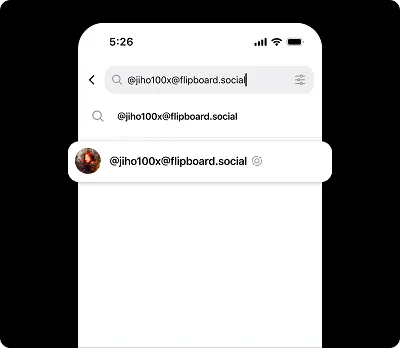Yeah, I’m still convinced that Meta’s ever going to go all-in on fediverse sharing, and its support of decentralized social media via a network of independent servers.
But it is pushing forward with its fediverse experiments in Threads, with the platform today getting a couple of new features for fediverse-connected users.
To recap, at launch, Meta made a commitment to ensuring that Threads would be interoperable with fediverse servers, meaning that, in theory, you would one day be able to follow users from other decentralized social apps, like Mastodon, within Threads. You’d be able to engage, interact, all via different servers, and over the past year, Threads has added various fediverse sharing options to facilitate external interconnection.
To be clear, Threads is not fully open to other platforms as yet, but you can share your updates to other fediverse servers, and have people follow you from other platforms.
And today Threads is expanding this, with fediverse-connected users now able to also see posts from federated users in the app.
As you can see in this example, you’ll now be able to view posts within Threads that were shared to other fediverse servers. Those posts will include their handles on other apps.
You’ll also be able to search for fediverse-connected users via Threads:

Though not all federated servers will be available.
For one, they have to be using the same protocol as Threads. Federated servers can only communicate with each other if, essentially, they speak the same language, and Threads is able to translate ActivityPub protocols, which is the same system that powers Mastodon, Bookwyrm, WriteFreely and others.
Mastodon is clearly the biggest of these, though with only around 1.4 million active users at present, there’s not a heap of expanded opportunity there.
The largest decentralized social app is Bluesky, but that’s built on AT Protocol, so, at this stage at least, it can’t communicate with Threads.
That may change in future, but right now, even this expanded decentralized linkage is fairly limited.
Is it that big of a deal either way? Do users really care about fediverse connection?
Well, it depends on who you ask.
Last week, TechCrunch’s Sara Perez wrote an overview of the expanded potential of Bluesky, and decentralized social media more broadly, in which she noted that the real benefit of decentralized social platforms is that provide more options, and personal control over your in-app experience:
“If you don’t like the tone of the topics trending on Bluesky, you can switch to other apps, change your default feeds, or even build your own social platform using the technology.”
This is the main benefit of decentralized social platforms, that you’ll no longer be beholden to the big corporates that control social media engagement, and definitely, there’s a case to be made on this front, considering how much control they enable billionaires to have over the broader information ecosystem.
But the biggest challenge for fediverse adoption is that the vast majority of regular users just don’t care.
And this is not unique to decentralized social experiments. Back in 2016, for example, in the wake of the Cambridge Analytica scandal, when Meta was being scrutinized over the way it accesses and handles user data, and all the headline reports were that people should quit Facebook, that they should update their privacy settings, that they should stop submitting their info to Zuck and Co. altogether.
The general feel, based on media coverage, was that there was a resulting Facebook backlash, but according to Meta itself, it saw no meaningful decline in usage, nor an uptick in people updating their privacy settings.
Because that’s not interesting, it’s annoying, people don’t like having to go into their settings and update their details, even when prompted, based on potential issues with their account.
This happens time and time again. A platform will launch a new dashboard to enable more control options, but no one will use it. Facebook will let you opt out of certain ads, but nobody does. TikTok will let you hold your data out of its ad targeting system, yet the vast majority of people still allow it.
Even though these users will still report having concerns about such, even though they’ll engage with reports about privacy issues, even though we see regular reports of mass data breaches. People don’t care, because convenience trumps complexity, for most social media users.
Which is why decentralized social won’t catch on, because the vast majority of people don’t want to have to select a server to connect to, or define rules for the algorithm, or figure out how to communicate across fediverse instances.
It’s all too much extra work, especially when you can create a profile on TikTok and let the algorithm show you stuff you’ll like, based on minimal input.
Social platform algorithms are now better than ever at highlighting content that’s relevant to each users’ interest, without them even having to like or engage with anything themselves, and while they continue to refine personalization to the laziest degree for users, fediverse connection is going the other way, and seeking more and more specific input.
Which, as people who are knowledgeable about such elements rightly point out, is a better way to go, but most people don’t fit into that category. And without critical mass, fediverse servers become more like elitist group chats, which appeal to fewer and fewer users as they become more refined.
Which, again, is why I don’t think Meta’s really taking this seriously, and is more hedging its bets with fediverse functionality. Sure, it looks good for Threads to link into other servers, leaning into the fediverse shift. But at this rate, it can hardly be called a “shift” at all, it’s more an alternative, a back-alley social gathering for nerdy conversations.
Which is likely good for those engaged in them, but less so for the general population.



